2022
Triple Book Launch: New Embodied Approaches to Narrative
LCE arranges a collective book launch to present and discuss three recent publications, all of which contribute new cognitive perspectives on literary narratives rooted in the body.
Time and place: Dec. 15, 2022 4:15 PM – 6:30 PM, HF-12, Niels Treschows hus
As the year is slowly coming to an end, LCE sets forth to take stock of new and upcoming contributions to the field of cognitive literary theory. In this collective book launch, three recent works will be presented by their authors in conversation, in order to spark a more general discussion of current trends in the field of cognitive literary studies.
Books to be launched
Merja Polvinen's Self-Reflective Fiction and 4E Cognition. An Enactive Approach to Literary Artifice (2022)
In this coming work, Polvinen proposes that stressing of literary artifice – in both traditional metafictional works and in speculative fiction – rather than distancing readers from an immersive reading experience, encourages them to engage with fictional narratives.
The book is available for pre-order from Routledge. [External link]
Marco Bernini's Beckett and the Cognitive Method. Mind, Models, and Exploratory Narratives (2022)
In this publication, Bernini argues that the narrative works of Samuel Beckett not merely represent cognitive processes, but that they themselves can be understood as models constructed to explore the mind – and proposes that literature should be considered an addition to the scientific study of the mind.
The book is available from Oxford University Press. [External link]
Marco Caracciolo & Karin Kukkonen's With Bodies. Narrative Theory and Embodied Cognition (2021)
In this work, Caracciolo and Kukkonen craft a theory of embodied narratology, drawing on a wide corpus of narrative material that stretches from antiquity to the present. It provides a model for analysing authors, narrators and storyworlds through embodied, embedded, extended and enactive perspectives in a comprehensive investigation of what it means to engage bodily with literary narratives.
The book is available from The Ohio State University Press. [External link]
The conversation will be moderated by Emily Troscianko.
Programme
The launch will involve an interactive element—but no preparation is required; simply turn up ready for some conversation! The event will include 1) the authors in conversation with our moderator and 2) structured discussion between the audience and the authors in small groups, before we open out into the informal part of the evening.
Participants
- Merja Polvinen is Senior Lecturer in English Philology at The University of Helsinki
- Marco Bernini is Associate Professor in Cognitive Literary Studies at Durham University
- Marco Caracciolo is Associate Professor of English and Literary Theory at the University of Ghent
- Karin Kukkonen is Professor in Comparative literature and the convener of LCE at the University of Oslo
- Emily Troscianko is Research Associate at TORCH – The Oxford Research Centre in the Humanities at the University of Oxford
Connected events
Workshop: Embodiment Moving Ahead: The Second Generation in 2022
16 December 2022, 1:30–6:00 PM
Organizer
Literature, Cognition and Emotions
Myths/Truths of the Creative Mind
In our cultural understanding, creativity is considered almost magical – who is capable of great creative feats, and why? In this lecture, Anna Abraham explores the myths and truths of the creative mind.
Time and place: Nov. 23, 2022 4:15 PM – 6:00 PM, PAM 2, P.A. Munchs hus
Abstract
Is the right brain the creative brain? Is creativity related to mental illness? Do drugs and alcohol enhance creativity? Is creativity the special ability of a talented few? These are some of the prominent questions about creativity that have long been of interest to academics and the general public alike. In our attempt to understand how creative minds operate, we favor explanations that are eccentric. It is as though any explanation for creativity, this seemingly magical phenomenon, must itself bear some inherent peculiarities to be convincing. When these notions come to be widespread and held as fact by many, academics often present them as pure myths that need to be debunked. Nonetheless, despite all the pronouncements and evidence to the contrary, creativity myths tend to persist. The question is why?
In this lecture, Anna Abraham explores dominant notions that abound about the creative brain and how they come about. In doing so, she unravels their roots and their truths.
About the lecturer
Anna Abraham is the E. Paul Torrance Professor and Director of the Torrance Center for Creativity and Talent Development at the University of Georgia (USA). She investigates the psychological and neurophysiological mechanisms underlying creativity and other aspects of the human imagination, including the reality-fiction distinction, mental time travel, social and self-referential cognition, and mental state reasoning. She is the author of the 2018 book, The Neuroscience of Creativity (Cambridge University Press) and the editor of the multidisciplinary volume, The Cambridge Handbook of the Imagination (2020).
Organizer
Literature, Cognition and Emotions (LCE)
From Masking to Masquerade: Autofictional Forms and Effects in Diachronic Perspective
As a visiting scholar at the Center for Biographical Research, University of Hawai’i at Mānoa, Alexandra Effe will be giving a talk within the Center’s “Brown Bag Biography” series. The event will be accessible also on Zoom.
Time and place: Oct. 27, 2022 11:59 PM – Oct. 28, 2022 1:15 AM, Zoom / Biomed B-104
Abstract
The contemporary publishing landscape is full of hybrid autobiographical-fictional books, commonly discussed under the (contested) label autofiction. The term, coined in the 1970s by writer and critic Serge Doubrovsky, is generally acknowledged to be applicable to texts also avant-la-lêttre, but nonetheless still mostly used for postmodern and contemporary texts. This paper proposes a holistic approach that allows us to better see and understand how autofictional forms have emerged, to chart developments in forms and functions, and to, in so doing, historicize the contemporary boom.
Alexandra Effe is Postdoctoral Fellow at the University of Oslo
About the talk
The talk will be accessible through Zoom as well as physically at the University of Hawaiʻi at Mānoa in Biomed B-104. Please note that the event takes place 12:00–1:15 PM (HST) and 00:00–01:15 AM (CET).
Brown Bag Biography Fall 2022 is arranged by Center for Biographical Research, University of Hawai’i at Mānoa and is cosponsored by Hamilton Library, the Spark M. Matsunaga Institute for Peace and Conflict Resolution, the School of Communication & Information, the Academy for Creative Media, the Hawaiʻinuiākea School of Hawaiian Knowledge, the Departments of Political Science, and Women, Gender, and Sexuality Studies, and the Literature, Cognition, and Emotions (LCE) research group at the University of Oslo.
Organizer
Center for Biographical Research, University of Hawai’i at Mānoa
Lecture with Lisa Zunshine on cultural and historical differences in reading literary minds
In a lecture titled "Mindreading: Cognitive Theory and Cultural Practice" Lisa Zunshine explores how the values of our communities affect our reading of minds in literature.
Time and place: June 13, 2022 2:15 PM – 4:00 PM, P.A. Munch, room 360
As readers we are shaped by our individual experiences — but our reading patterns are also influenced by the values of the communities in which we are embedded. This applies to how we think about others' minds in literature. To quote Webb Keane, an anthropologist who writes on religion and ethics, while "theory of mind and intention-seeking are common to all humans," they are "elaborated in some communities [and] suppressed in others" (Ethical Life, 131). As a literary scholar working with theory of mind and fiction, Lisa Zunshine is interested in historical contexts that encourage or discourage certain types of mindreading associated with fictional characters, their authors, and their audiences. In her talk, Zunshine presents a series of case studies from a wide range of cultures to explore those contexts and the narratives that they make possible.
Lisa Zunshine is Bush-Holbrook professor of English at the University of Kentucky and a former Guggenheim Fellow. Her research interests include cognitive literary and cultural studies and eighteenth-century British literature. Lisa Zunshine is the author or editor of twelve books, including Why We Read Fiction: Theory of Mind and the Novel (Ohio State UP), Strange Concepts and the Stories They Make Possible (Johns Hopkins UP), The Oxford Handbook of Cognitive Literary Studies (Oxford UP), Introduction to Cognitive Cultural Studies (Johns Hopkins UP), Getting Inside Your Head: What Cognitive Science Can Tell Us About Popular Culture (Johns Hopkins UP), and, most recently, The Secret Life of Literature (MIT Press).
Organizer
Literature, Cognition and Emotions (LCE)
2020
Karina van Dalen-Oskam: Novel Perceptions. Comparing Literary Values in Different Countries
How do novels’ textual features shape readers' perceptions of literary value? Professor Karina van Dalen-Oskam will visit LCE to speak about her innovative research on perceptions of literary quality.
Time and place: Nov. 2, 2020 15:15 PM, Zoom.

Which features of a novel help readers perceive it as having high or low literary quality? Can we trace a clear genre hierarchy in the perception of readers, and if so, how are literary novels by female authors valued compared to those written by men?
In this lecture, Professor Karina van Dalen-Oskam will respond to these questions by presenting her cutting-edge research on perceptions of literary value.
Uncovering literary trends
Karina van Dalen-Oskam is principal investigator in the Dutch collaborative project The Riddle of Literary Quality. The project applies a mixed-methods approach to investigate the relationship between a novel’s formal characteristics and literary quality.
Using surveys and stylometry tools (computational stylistics), the group investigates the relationship between readers’ opinions and formal characteristics in a corpus of 400 novels. The results uncover literary trends in the Netherlands which, the collaborators suspect, may be a reflection of still existing inequalities and gender-bias in Dutch society today.
Karina van Dalen-Oskam will describe the methods and findings from the project in more detail. She will also talk about how they are now taking the project globally, starting with the United Kingdom, to see whether a comparable approach uncovers the same or different conventions in other countries.
Karina van Dalen-Oskam will also visit the LCE Reading Group.
Karina van Dalen-Oskam (external link) is head of the department of Literary Studies at Huygens Institute for the History of the Netherlands and Professor in Computational Literary Studies at the University of Amsterdam.
Talk with Gunnhild Øyehaug at Forskningsdagene
LCE hosts a talk entitled “Your Brain on Books: Gunnhild Øyehaug’s ‘Dreamwriter’” at The House of Literature. Link to Facebook event.
Time and place: Sep. 16, 2020 7:00 PM–8:00 PM, The House of Literature, Amalie Skram
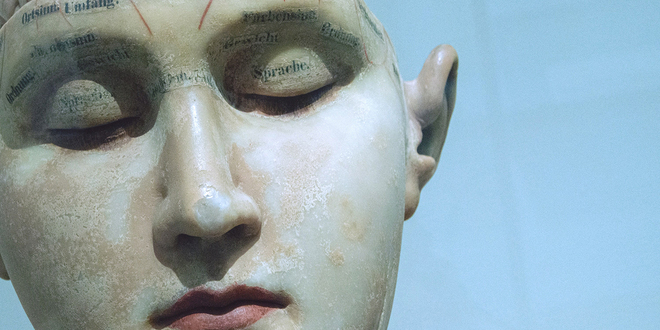
Photo: David Matos, Unsplash
We know that literature affects us – but how? We trace the trajectory between the author’s imagination, literary expressions through language and the reader’s brain. Listen to Gunnhild Øyehaug read her short story "Draumskrivar" and discover how your own reading experience comes to life.
Some parts of the event will be held in English. Gunnhild joins us digitally via Zoom.
Panel participants: Alexandra Effe, Ylva Østby, Karin Kukkonen and Gunnhild Øyehaug.
Due to covid-19 restrictions, organizers must register who is in the audience. Therefore, free tickets must be reserved in advance. Free tickets will be made available 11 September 09 AM and can be reserved on this webpage.
Øyehaug will speak with LCE at Litteratur på Blå (external link) the previous day, 15 September. She will also visit the LCE Reading Group.
Lecture with Alan Fiske: Semantic, Narrative, and Procedural Representations of and for Emotions
Alan Fiske, Professor of Anthropology at the UCLA, speaks on different ways of remember-knowing, using examples from literature.
Time and place: Apr. 29, 2020 4:00 PM–6:00 PM, Zoom
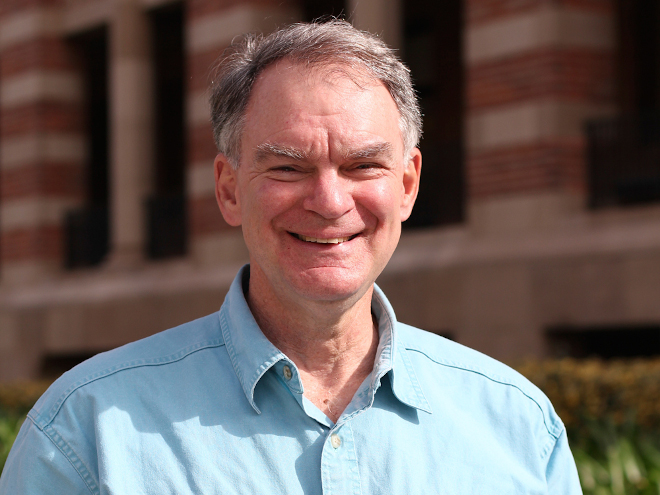
Photo: UCLA
Cognitive science distinguishes among a number of distinct memory systems that are at the same time systems of representation of what is currently occurring or what might happen in the future. In particular, it is interesting to consider three ways of remember-knowing an emotion: semantic-conceptual, narrative (‘episodic’), and procedural. Any two ways of remember-knowing an emotion consist of different sorts of ‘information,’ represented in distinct ways –no two are equivalent. Moreover, a person or a culture may remember-know an emotion in one or two of these ways without remember-knowing it in the other way(s). Scientific (and other scholarly) ways of semantically knowing an emotion must take in account these three (and other) folk ways of remember-knowing an emotion, but must transcend them – because the functions of scientific models differ from the functions of folk models. I illustrate these issues with respect to the scientific construct of kama muta and some of the semantic, narrative, and procedural folk ways of remember-knowing kama muta. I focus on literary narratives, including poetry.
Organizer
Literature, Cognition and Emotions
2019
RITMO seminar with Karin Kukkonen on the multiple speeds of literary narrative
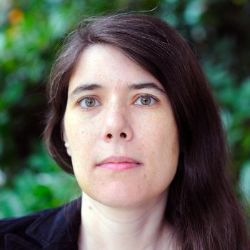 Time and place: Nov. 12, 2019 1:15 PM–3:00 PM, Forsamlingssalen, Harald Schjelderups hus
Time and place: Nov. 12, 2019 1:15 PM–3:00 PM, Forsamlingssalen, Harald Schjelderups hus
In a seminar hosted by RITMO, Karin Kukkonen will explore the multiple speeds in narrative.
Link to event here
Organizer
Digital fiction at HumSam with Kate Pullinger and Matt Hayler
In collaboration with LCE, the Humanities and Social Sciences Library and Litteratur på Blå are hosting a talk on literary fiction and new digital formats.
Time and place: Oct. 31, 2019 6:00 PM–8:00 PM, Sophus Bugge

Kate Pullinger, author of Breathe and Professor of Creative Writing and Digital literature, along with Matt Hayler, Senior Lecturer in Contemporary Literature and Contemporary Cultures, discuss what happens when literature becomes digital. The conversation will be moderated by Karin Kukkonen.
Organizer
HumSam Library, Sophus Bugge and Litteratur på Blå
LCE lecture at UiO’s annual Teachers' Open Day
Time and place: Oct. 31, 2019 11:15 AM–12:00 PM, Eilert Sundts hus, Auditorium 4
Olivia Fialho and Karin Kukkonen speak on the pedagogical applications of literature in the classroom and "transformative readings".
Lecture with Sibylle Baumbach on literary attention
Sibylle Baumbach speaks on attention and literature in a lecture entitled “From the Brain Attic to Moral Attention: Literary Attention and the Short Story”.
Time and place: Sep. 19, 2019 10:00 AM–12:00 PM, P.A Munch, room 1
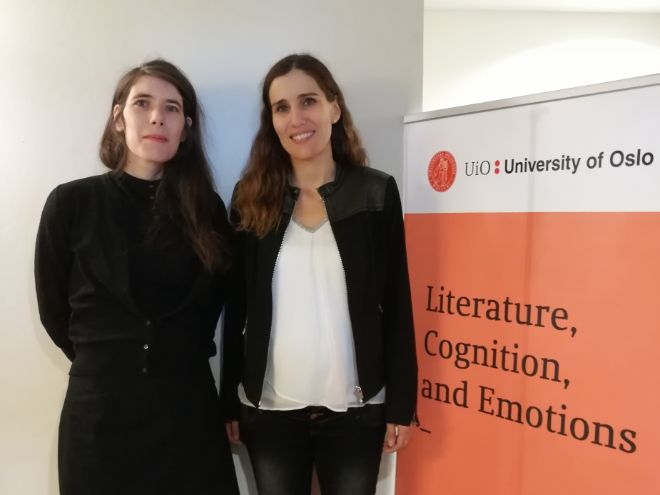
Photo: Ylva Østby
We live in a culture of distraction. The lure of 24/7 connectivity and the sheer unlimited access to information have given rise to growing attention anxieties and sparked a new interest in mechanisms of attention and distraction in cognitive psychology. These anxieties, however, are nothing new: instead, as Baumbach will argue in this talk, they have fundamentally guided the development of literary genres, especially the development of the short story. Based on selected case studies, from Arthur Conan Doyle to Ian McEwan and Hilary Mantel, she will further examine this connection and discuss to what extent short stories help promote a new kind of literary attention by countering cultural anxieties of inattention and engaging in a growing attention economy.
Sibylle Baumbach is professor of English literature at the University of Stuttgart. She works on cognitive literary studies, the aesthetics of fascination and literary attention.
Organizer
Literature, Cognition and Emotions
Book launch with Stephan Guth
Time and place: Sep. 13, 2019 1:15 PM–2:15 PM, Scene HumSam
Stephan Guth launches his latest book, Literary visions of the Middle East, an anthology containing over 40 texts of modern Arabic, Turkish, Persian and Hebrew fiction.
Organizer
Humanities and Social Sciences Library and and Centre for Islamic and Middle East Studies
Lecture with Johanna Kaakinen on emotions, physical movement and literature
In a lecture entitled “Emotional engagement with literary stories: Evidence from motion capture recordings and eye movements”, Johanna Kaakinen speaks on the interaction between feelings and understanding in literary reading
Time and place: Sep. 11, 2019 10:00 AM–12:00 PM, P.A Munch, seminarroom 360
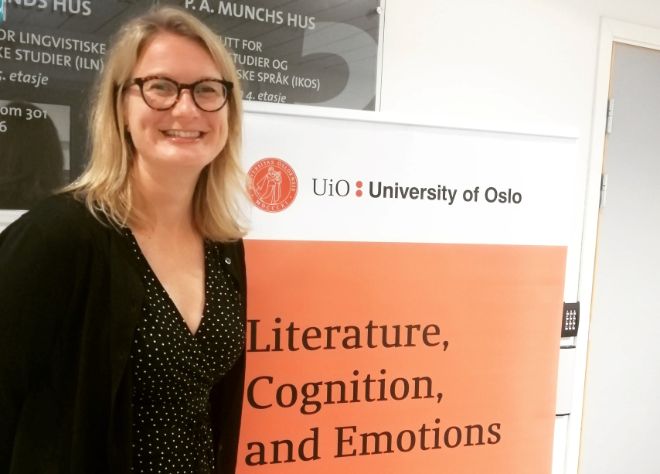
Photo: Ylva Østby
Literary texts, such as erotica or horror stories, are written with the purpose of inducing emotional reactions in readers (Mar, Oatley, Djikic & Mullin, 2011). However, very little is known about how the emotional engagement induced by text content influence the processing of text (but see Ballenghein, Megalakaki & Baccino, 2019; Wallentin, et al., 2011). In a series of recent laboratory studies, Johanna Kaakinen have examined how readers interact with erotica and horror stories by utilizing a combination of motion capture and eye movement recordings. She will present the results of these studies and discuss how they advance our understanding of the role of emotions in text comprehension (Kintsch, 1998).
Johanna K. Kaakinen is senior research fellow at the Turku Institute for Advanced Studies & Department of Psychology in Finland. She investigates the role of emotions in text comprehension by the use of eye tracking.
Organizer
Literature, Cognition and Emotions
Lecture with Winfried Menninghaus on emotions and art
September 5th, Winfried Menninghaus speaks on “The Enjoyment of Negative Emotions in Art-Reception”
Time and place: Sep. 5, 2019 10:00 AM–12:00 PM, P.A Munchs hus, room 360
Ever since Aristotle’s theory of tragedy, it is a key of poetics and aesthetics to explain why and how we can experience negative emotions in conjunction with feelings of pleasure. The lecture presents a new explanatory model for this issue, along with a series of empirical studies that informed this model.
Winfried Menninghaus is director of the Department of Language and Literature at the Max Planck Institute for Empirical Aesthetics (Frankfurt am Main).
His research interests include empirical studies on literature, feelings and aesthetic experience.
Organizer
Literature, Cognition and Emotions
Siri Hustvedt at Blå
Siri Hustvedt discusses her latest novel, Memories of the Future, with Karin Kukkonen at Blå.
Time and place: May 31, 2019 7:00 PM–10:00 PM, Brenneriveien 9c, Oslo 0182
Photo: Spencer Ostrander
Litteratur på Blå together with the Literature, Cognition and Emotions group will host a conversation between Siri Hustvedt and Karin Kukkonen. Hustvedt, prize-winning author of both fiction and non-fiction, will discuss her latest novel, Memories of the Future, and how it situates itself in her own authorship as well as within contemporary literature. The conversation will be held in English.
2018
Reverse engineering literary cognition: a view from dyspraxia and learning disorders
Guest lecture by Gunther Martens (Ghent University). Open for all.
Time and place: May 9, 2018 2:15 PM, P. A. Munchs hus, rom 389
About the lecture
There has been an avid uptake of the paradigm of embodiment and distributed cognition in cognitive literary and film studies. However, little attention has been paid to the way in which the mind’s interaction with an increasingly technological and digitized environment invites us to reconsider aspects of automation related to cognition itself. In my talk, I will present an invitation to leave the via regia of felicitous, high-level cognition in order to focus on the sensorimotor basis of cognition and potential problems related to executive functioning and working memory.
While drawing on recent theories of the psychology of learning disorders, I will reflect on the current state of the debate by taking a historical detour, namely through a discussion of Robert Musil’s The Man without Qualities. I will argue that Musil, who trained as an engineer and an experimental psychologist, wrote one of the first literary works conceived from the vantage point of information overload and sensory processing issues. In a second step, I will explore theoretical and imaginative scenarios of distributed cognition and “cognitive assemblages” (Hayles) by means of an overview of both advances in digital humanities and recent works of science fiction (e.g. Dietmar Dath).
Organizer
Literature, Cognition and Emotions
2017
Cognitive Tropes of Memory: Constructions of Hope and Trauma
In this guest lecture, Andrea Lešić-Thomas will talk about the cognitive tropes of memory.
Time and place: Oct. 19, 2017 2:15 PM–4:00 PM, P.A. Munchs hus, seminar room 360
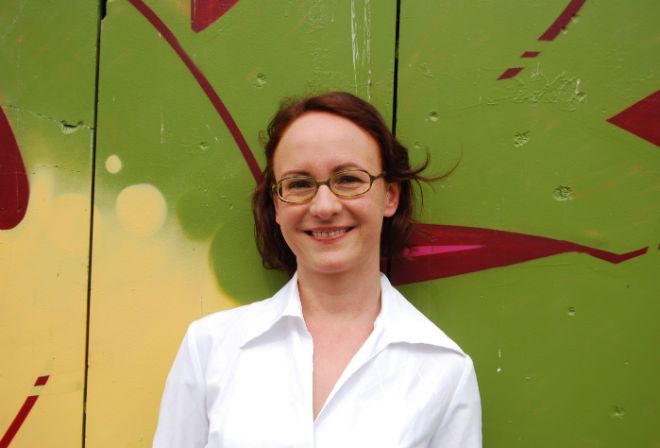
Dr Andrea Lešić-Thomas teaches literary theory at the Comparative Literature and Librarianship Department at the Philosophy Faculty, University of Sarajevo.
This paper will explore the possibilities of using the insights of cognitive poetics in the study of literary memory texts, and, from there, in the study of cultural memory formation and regulation.
The basic idea to be examined is how the use of tropes (understood, following Lakoff & Johnson, Fauconnier and Turner, as tools for the cognitive organisation of the world represented in the literary text, and not just as its stylistic features) plays a part in the organisation of memories, both as methods for coding and decoding memories, and as conceptual tools for thinking about the processes of memory.
Defining memory not as a reliable mental record of past events, but as a process of meaning-creation which is highly context-dependent, goal-oriented and, in many cases, and preferably, future-oriented, I shall argue that the problems of memory start when it falls prey to rigid patterns of cultural stereotype and cliché, which restrict its ability to produce new meanings and adapt to new contextual circumstances.
My argument is that the conceptual tropes we use for imagining and regulating memory, both personal and cultural, significantly influence the levels of flexibility and inclusiveness of meaning and identity generated by memory processes, and can enable or disrupt the creation of stereotypes and clichés.
In the case of traumatic memories, whether we end up with endless pain and impasse or with renewal and hope will be, at least in part, the result of the kind of trope that was used for working through those traumatic memories. The principal cognitive tropes I shall explore will be the metaphors TRADE and VOID, the metonymies PHOTOGRAPH and MUSEUM, and the synecdoche DOCUMENT.
Literary texts and the cultural context used as illustration for my main points will be the contemporary literature and culture of Bosnia-Herzegovina.
About
Dr Andrea Lešić-Thomas has studied (Belgrade and London), taught (School of Slavonic and East European Studies and Queen Mary, both University of London, and currently Philosophy Faculty, University of Sarajevo) and written on comparative literature (Russian, French and South Slav literatures) and literary theory (in particular structuralism, narratology, and Bakhtin, as well as memory studies). She currently teaches literary theory at the Comparative Literature and Librarianship Department at the Philosophy Faculty, University of Sarajevo, and conducts research on memory studies, cognitive poetics, love stories, and vampires. She is the author of the book Bahtin, Bart, strukturalizam: Književnost kao spoznaja i mogućnost slobode, Beograd: Službeni glasnik, 2011.
Organizer
The Research Group Literature, Cognition and Emotion
Fiction and Cognition
A multidisciplinary approach (neuroscience, history, literary theory).
Guest lecture by Noëlle Batt (Paris VIII).
Time and place: May 15, 2017 1:15 PM, P. A. Munchs building 389.

Professor emeritus Noëlle Batt.
After defining the concept « fiction » in relation to other concepts and notions (« interpretation », « imagination », « invention », « representation », « cogitatio »… ; « image », « aspect », « thought experiment », « phantasma »…), we shall study the way it is used in different disciplines by different authors : neuroscience (Lionel Naccache, Marc Jeannerod), history (Patrick Boucheron, Carlo Ginzburg), literary theory (Gérard Genette, Jean-Marie Schaeffer).
Noëlle Batt is Professor emeritus of American literature and literary theory at the University Paris VIII-Vincennes. She directed for 20 years a research program on « Literature and Cognition » and was the director of the Journal TLE (Théorie, Littérature, Epistémologie) published by the University Press of Paris VIII (Presses Universitaires de Vincennes (PUV).
Noëlle Batt is also a member of the seminar « Literature and the Mind » (University of California at Santa Barbara) and of SLSA (Society for literature, science and the arts).
Organizer
Literature, Cognition and Emotion at ILOS
2016
Memory and Intertextuality in Eliot and Shakespeare
Talk by Raphael Lyne (University of Cambridge, UK). This lecture is connected to the researcher group "Literature, Cognition and Emotions".
Time and place: Nov. 14, 2016 1:15 PM, P. A. Munchs building, room 389

Raphael Lyne (University of Cambridge, UK).
In my book Memory and Intertextuality in Renaissance Literature (2016) I wrote about Shakespeare's use of Plutarch in a famously derivative passage in Antony and Cleopatra: 'the barge she sat in, like a burnished throne...'. I want to extend the scope of the book by turning to another famously derivative passage in T.S. Eliot's The Waste Land: 'the chair she sat in, like a burnished throne...'.
I aim to think further into the ways in which we can think about literature through memory, and memory through literature -- and further into both Shakespeare and Eliot. I will turn to Charles Fernyhough's Pieces of Light: The New Science of Memory (2013), which explores the reconstructive nature of remembering, to find terms and frameworks in which to consider intertextual reconstructions as things emerging in the text's present, not windows into its past.
While doing so, in response to Rita Felski's The Limits of Critique (2015), I will suggest some ways in which a cognitive approach to literature might offer an alternative to a 'hermeneutics of suspicion', stressing affinities and affordances, the collaborative work of making a play or a poem.
Organizer
Department of Literature, Area Studies and European Languages
Literature and humour: A relevance theory approach
Talk by Francisco Yus (University of Alicante, Spain). This lecture is connected to the researcher group "Literature, Cognition and Emotions".
Time and place:Oct. 10, 2016 1:15 PM, P. A. Munchs building, room 389
In this talk, I am going to review several aspects pertaining to literature and humour.
Firstly, I will introduce briefly some of the basic tenets of relevance theory which are supposed to be at work in the production and interpretation of any kind of discourse (utterances, typed messages, written texts).
Secondly, I will propose an extension of the relevance-theoretic model so as to include a pair of terms that are essential to explain the outcome of certain kinds of communication such as irony, humour or Internet-mediated discourse: the terms contextual constraint and non-intended non-propositional effect.
Thirdly, some ideas on the application of relevance theory to literature and humour, taken separately, will be provided.
Finally, some ideas on how the possible analysis of the specificity of humour in literature will be put forward, in an attempt to provide a valid explanation to the fact that long sequences of discourse such as novels cannot have the same clear structure as do shorter forms of humorous discourse such as jokes or short stand-up comedy monologues.
Organizer
Department of Literature, Area Studies and European Languages
